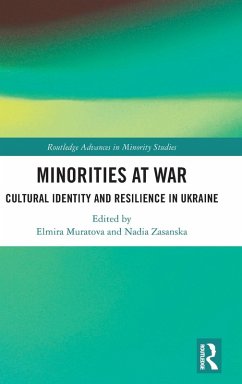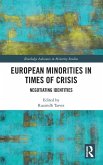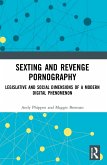This collection focuses on Ukraine's ethno-cultural minorities who in recent years have undergone forced displacement, emigration, the destruction of familiar ways of life, and a transformation of identity and language behaviour. The book examines the impact of Russia's war against Ukraine, which began with the annexation of Crimea and the war in Donbas in 2014. It shows what happens to the cultural identities of minority groups and considers the mechanisms and components of their resilience in times of crisis. Key themes addressed include minorities' collective memory and coping strategies, mobilisation and humanitarianism, forced displacement, and the preservation of identity. While most works on the Russo-Ukrainian war focus on the international context and the causes of the war and its humanitarian consequences for the population of Ukraine and the region as a whole, this book seeks to mainstream the issue of ethno-cultural minorities, which is often neglected in the coverage of this type of conflict. The book will be of interest to academics, researchers and policy-makers working in the areas of Law, Political Science, Anthropology, Human Geography, Religious Studies and War and Peace Studies.
Chapter 6 of this book is freely available as a downloadable Open Access PDF at http://www.taylorfrancis.com under a Creative Commons Attribution (CC-BY) 4.0 license.
Chapter 11 of this book is freely available as a downloadable Open Access PDF at http://www.taylorfrancis.com under a Creative Commons Attribution-Non Commercial-No Derivatives (CC-BY-NC-ND) 4.0 license.
Chapter 6 of this book is freely available as a downloadable Open Access PDF at http://www.taylorfrancis.com under a Creative Commons Attribution (CC-BY) 4.0 license.
Chapter 11 of this book is freely available as a downloadable Open Access PDF at http://www.taylorfrancis.com under a Creative Commons Attribution-Non Commercial-No Derivatives (CC-BY-NC-ND) 4.0 license.
"Often underappreciated, Ukraine's cultural diversity is a crucial source of its strength as well as a challenge for its policymakers, especially as Russia tries to weaponize minority rights in its bloody warfare. This timely book, featuring leading Ukrainian and global experts, is an essential read for understanding this important topic".
Henry E. Hale, Professor of Political Science and International Affairs, and Director of the Elliott School's Institute for European, Russian, and Eurasian Studies at George Washington University
"This volume makes a thoughtful contribution to the discussion about national minorities in Ukraine. A range of different perspectives and case studies capture the diversity and hybridity of identities within the larger civic identity of Ukraine, mapping their role in the resilience of the Ukrainian state and future policy challenges".
Gwendolyn Sasse, Director of the Centre for East European and International Studies (ZOiS) and Professor at Humboldt-Universität zu Berlin; author of Russia's War against Ukraine
"This urgent and extraordinary interdisciplinary volume sheds overdue light on how Ukraine's minorities conceive of their future. It will change the way you think about Ukraine, and it will change the way you think about the most consequential conflict in Europe since the Second World War".
Rory Finnin, University of Cambridge, Director, Cambridge Ukrainian Studies Programme
Henry E. Hale, Professor of Political Science and International Affairs, and Director of the Elliott School's Institute for European, Russian, and Eurasian Studies at George Washington University
"This volume makes a thoughtful contribution to the discussion about national minorities in Ukraine. A range of different perspectives and case studies capture the diversity and hybridity of identities within the larger civic identity of Ukraine, mapping their role in the resilience of the Ukrainian state and future policy challenges".
Gwendolyn Sasse, Director of the Centre for East European and International Studies (ZOiS) and Professor at Humboldt-Universität zu Berlin; author of Russia's War against Ukraine
"This urgent and extraordinary interdisciplinary volume sheds overdue light on how Ukraine's minorities conceive of their future. It will change the way you think about Ukraine, and it will change the way you think about the most consequential conflict in Europe since the Second World War".
Rory Finnin, University of Cambridge, Director, Cambridge Ukrainian Studies Programme









